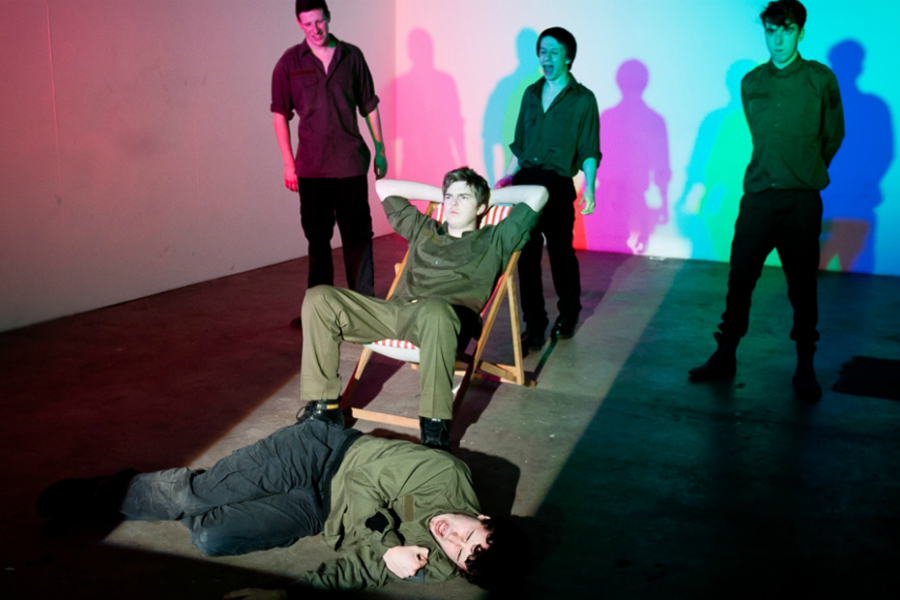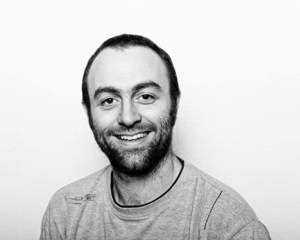Young Everyman Playhouse: “We wanted a theatre that was really connected to the youth in the city”

Toby Hood quizzes the Everyman’s youth theatre director Matt Rutter on drawing out talent, creative control and the importance of arts funding…
With a new theatre comes fresh talent. As Director of Young Everyman Playhouse (YEP), Matt Rutter guides the future generation of Liverpool’s young actors, writers, technicians, programmers, communicators and directors, providing anyone between the ages of eleven and twenty-five with the chance to involve themselves in making theatre happen.
Keen to hear how Liverpool’s theatrical institutions engage with the city’s young dramatists, I meet Matt in the Everyman’s new rehearsal studio.
Tell us about yourself, how you got into the role and what the YEP programme does.
Matt: I started doing a bit of freelance work for the theatre, directing. I’d done a bit of work with young people before and I had done quite a bit of directing as well, and it seemed like a nice fit. I’ve been doing it for [hesitating] three years now.
Before [YEP] we [the Everyman] had thirty members in a youth theatre… we wanted a theatre that was really connected to the youth in the city. The idea of YEP was that we would build a younger company that bubbles along under the main house… We can provide an experience for the youth that isn’t just all onstage.
The Grid opening this week — the first play YEP have produced completely on their own. How is that going?
It’s great. What’s been exciting is having all those strands up and running, feeding into it. Having our base technicians and YEP technicians running alongside our professional technicians in the theatre has been great to see. Two of our graduate young writers, Alex Joynes and Laura Kate Barrow, co-wrote the piece… We’ve got Katie Scott who’s designed the set, and all the LIPA stage management team as well. Aside from a duty technician and myself and Tom [Chris Thomlinson, the other young associate director] as directors, it really will be, on the night, run and created by young people.
The programme’s obviously all about nurturing young talent and the future of theatre. The play itself is set in the future. But is there room in YEP for theatrical heritage?
The YEP members always come and see whatever’s on here, and there is a real importance in seeing where theatre has come from. But, for me, the idea of YEP is that after we’ve up-skilled these young people that they’ll go off and form companies of their own. So it’s about giving them the skills to go and make theatre really.
As someone who has always worked with youth groups, is the thing to train them towards success, or is it more about the community aspect and giving young people something to do?
I think it can really be both. You don’t have to come from being the best performer or writer or the best communicator in the world. It’s about giving people a chance.
At the minute one of our young actors, Lewis Bray, has just been commissioned to make a piece in the studio, which for him is going to be his first professional step with a show called Cartoonopolis. For the young producers, with their night Scene Change, it’s about letting people across the city show their work. It’s not about being a member of YEP — you could be a stand-up comedian, an artist, a different theatre group or just someone who wants to show their work and do ten minutes at Scene Change.

I’ve got a quote here from an earlier interview you did.
[laughing] Oh dear, please don’t let it be something I said I’d do which I blatantly haven’t achieved.
No, no, you can definitely answer this one. You said when the programme first started out that it was led by you artistically, and in the future you would transfer that over. Do you feel like you have less responsibility now or does it get more complicated?
It’s not so much relieving pressure or responsibility; it’s more . . . how can I put it? It’s more managing it differently, because if it’s just on you, that’s one thing, but if it’s young people doing it, it’s about how you’re managing them doing that. So the worry is not, ‘Will I get this show done?’ It’s more like, ‘Will they get that show done?’
And do they always come through?
I think by the end of this year and the start of next year is when that really should start happening, because producers and directors are more likely to take ownership of a project. I don’t give any artistic advice to them; they do it and I just check in and go, “Is everything ok?”
Even though The Grid has been directed by myself and Tommo [Chris Thomlinson, the other young associate director], they have made the work. You know? It’s not just a piece of theatre that we’ve plucked out the air; they’ve talked about the structure, the scenes, the young actors have improvised, put it altogether and handed it over to the young writers and they’ve made sense of it. So although we’re leading the process, we’re not leading it creatively as such.
Would you say that the backstage production is more technical than directing?
With the directors it’s about giving a bit of guidance. It’s slightly different working with Christina our YEP technician, that’s real training. The creative side is always a bit more hard to pin down.
Well they say it can’t be taught.
It probably can’t be taught, but it can be drawn out of people.
Do YEP applicants have a lot of experience when they come to you?
You know what? We get absolutely all sorts. It’s great man; we’ll get some actors who come in and go, “I’m going to drama school and these next two years I’m going to learn as much as I can.” Then we’ll get a young kid who’s shy and not been out of his bedroom in two years who will do a couple of sessions and get a bit of confidence. That’s what I love about YEP; it’s not elitist, you don’t have to come in and audition or anything, it’s an open door policy.
How do you cater for both experienced and inexperienced young people?
It’s a really difficult challenge to have something that is both open door and trying to be very, very good. It’s just about being dead open and honest with them. You find the really experienced ones will pull the less experienced up. We’re really proud of the open culture where people are just accepted.
You say that the programme was always going to be a part of the new building. How has the YEP company influenced construction?
[With great pride] Well, this is our room that we’re in! We have first call of this studio across the theatres. It’s our space first.
There’s also a real push in each department to work with young people… It’s all about being together. In the YEP programme we have guaranteed slots in the main theatres; two or three every year if we want them. So that’s great to have that opportunity and for young people to get on that main stage.
How important are youth groups like this? Did you have anything similar when you were growing up?
I didn’t, no. I do wish I had. I was born in Carlisle, where there was a real lack of anything drama-y, and I went down the sport route with my spare time, before getting into this. I think it’s dead important for people who want to get in that profession, but also hugely important for those young people who might not know they want to do drama, and do it to get a bit of confidence and know how to work around people. I just think it’s what these theatres should be doing.
Do you have any concerns about the arts industry being hit with funding cuts?
I think we’re very fortunate as a company at the minute, because we’ve just been given fundraising for a brand new theatre. But I think the arts are hugely important for all sorts of reasons. Just for young people to see things and experience the world from a different perspective and, to be honest, have a really good time [laugh]. It’s a great job man, if you get into it it’s one of the best in the world.
Toby Hood
YEP production The Grid shows at the Everyman Theatre, Liverpool until Saturday 26 April 2014, tickets £4/6
See more on Young Everyman Playhouse
Check out two Liverpool Everyman Playhouse spin off programmes – The Annexe Writers and Writer’s Lab





